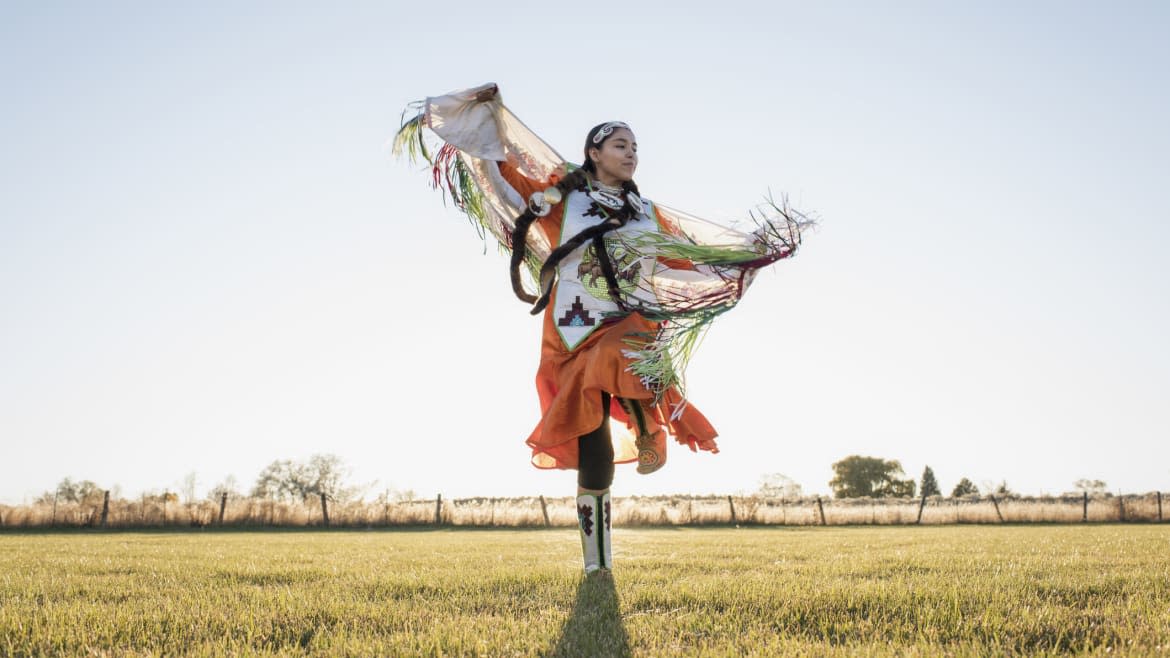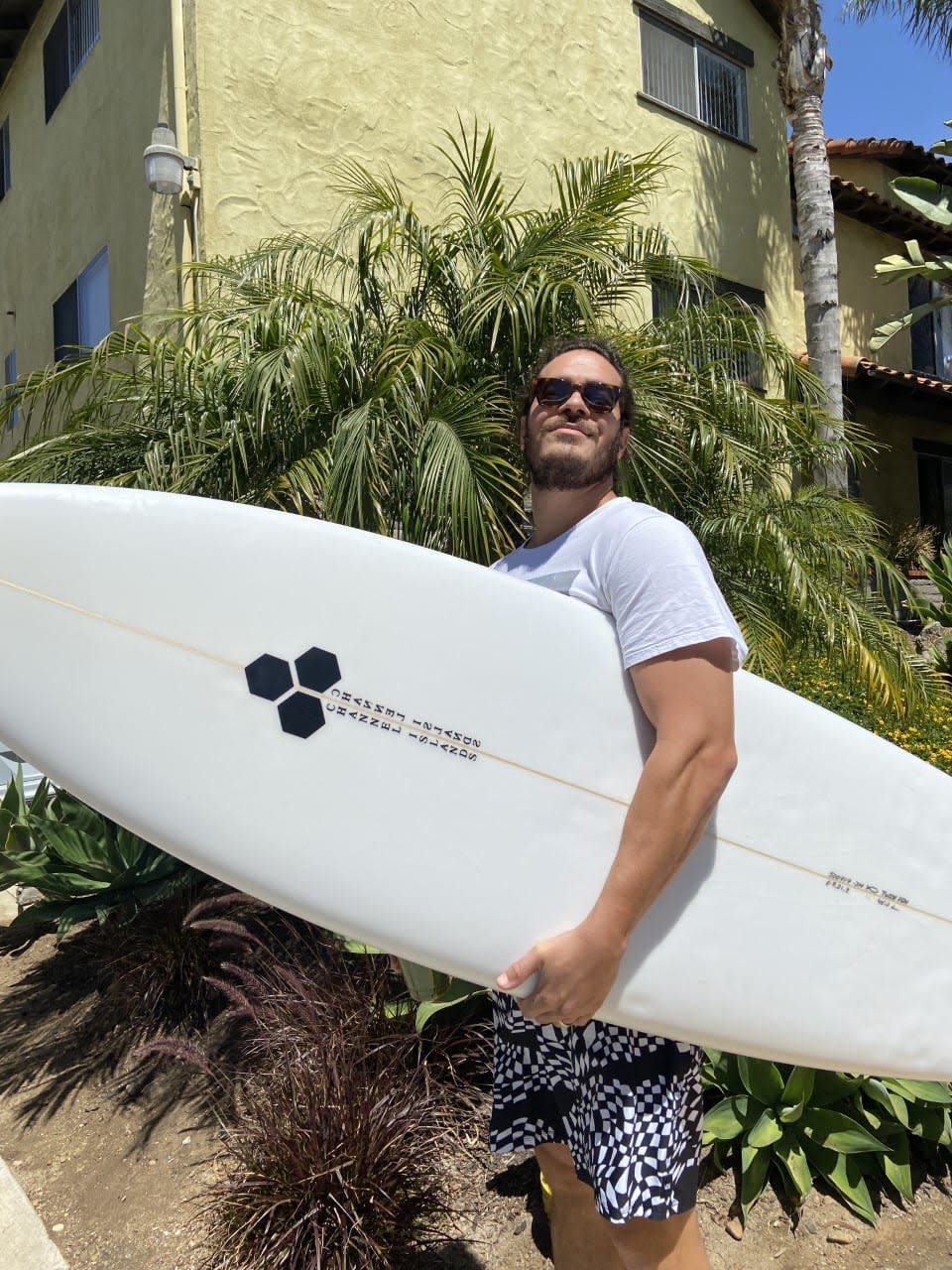Blockchain May End the Pillaging of Indigenous Genetic Data

You wouldn’t know that Keolu Fox was a genomic scientist at the University of California, San Diego by just looking at him. His long hair, beard, and easy going personality seems more fitting for a beach in Los Angeles or a smoke circle at a party than a stuffy lab—and indeed, he’ll tell you that there’s nothing he loves more than surfing or smoking a joint every now and then. But once you get the Native Hawaiian going on the intricacies Indigenous genomics or the extractive practices of big corporations and colonial governments, you’ll find out quickly what he’s actually about.
“This is about values at the end of the day,” Fox told The Daily Beast. “We don't fit in with the status quo because we view it as extractive. Our lives have been directly influenced by colonialism and we see it everywhere in science. So it's impossible for us not to disrupt.”
The disruption he’s referring to is a proposal for Indigenous communities to take back control of a fundamental part of them: their DNA—or more specifically, their genomic data. For decades, researchers have been able to freely access the genomic information of underrepresented Indigenous populations all over the world due to large-scale DNA mapping initiatives like the Human Genome Diversity Project.
While the goals of these projects are ostensibly good—the collection and preservation of biological data from people across the world—they’ve also resulted in an inequitable and exploitative use of that data. This is especially the case when it comes to underserved communities and populations.

“Many ongoing genetic studies utilize biomarkers from Indigenous groups, but these Indigenous groups’ own existence isn’t being acknowledged by their colonial governments,” Krystal Tsosie, a geneticist and bioethicist at Vanderbilt, told The Daily Beast. “Yet there’s this rapid search—and this phrase has been used in publications in the past to describe the Human Genome Diversity Project—to sample these populations before Indigenous people vanish. Like it’s a rush to sample us like we’re gold practically.”
Fox compares genomic data to oil. Where companies in the past made their billions in the extraction of fossil fuels, a new industry of data aggregation has risen—proving itself to be incredibly lucrative for unscrupulous for-profit companies looking to collect and sell data on people.
These communities, Tsosie explained, rarely benefit from having their DNA sampled, despite lofty promises that their genetic information will lead to the development of medical treatments that will directly help them.. Instead, the data is used by companies such as AncestryDNA and 23andMe in order to flesh out their ancestry database, or scientists will use it in their own research and papers that don’t help or serve these populations at all.
“Scientists and for-profit companies utilize indigenous biomarkers from exploited groups commercially. But meanwhile, the Indigenous peoples that provided the data are still dying,” Tsosie said. “They’re still waiting for those medicines and therapeutics to arrive even though they were promised it.”
So to confront these inequitable practices then, Tsosie and Fox propose utilizing blockchain in a commentary published on Thursday in the journal Cell. Though you might associate blockchain with cryptocurrencies or NFTs, the technology could actually give Indigenous communities control over how their very DNA is used. With blockchain, they could limit access to the genomic data, allowing only certain researchers to use it at their judgment.
The commentary hearkens back to the original promise of the technology before it was co-opted by cryptocurrency and NFT influencers. Used as a distributed ledger, it could store and protect data in a transparent way. When it comes to Indigenous genomics, the goal then is to “keep track and help mediate access” to the records and allow for data to be shared in a concerted, well-recorded manner, according to the paper. Whenever someone wants to use or access the data, that information is recorded on the blockchain. That way there is always a record of who used it, and for what purpose.
“Everybody associates blockchain with cryptocurrencies and NFTs, which is sad and shameful because it kind of negates what the actual true potential and utility of a blockchain system is,” said Fox, the senior author of the commentary. “Blockchain is an opportunity to decentralize control.”
Blockchain is like a digital ledger or database. It works by collecting data in groups called “blocks.” When a block is filled with data, it’s added to a chain dubbed the blockchain. Each block contains a timestamp and information about transactions including who accessed it. Since it’s distributed via a computer network, it's decentralized too. It can also be encrypted with a unique key that allows it to be accessed by specific individuals. So while it’s often used to transfer cryptocurrencies from one user to another, it also has a lot of promise in storing different kinds of data like Indigenous genomics in a secure and transparent way.
According to the paper, metadata such as gender, age, group, DNA or RNA sequence data, and whole-genome sequencing data would be stored on the blockchain. If a researcher or a company wants to access the data, they will make a request via a smart contract, which will record the requestor on the chain. The request can then be approved or denied. If approved, the user will be able to gain access to the data. (Bear in mind this is just a hyper-simplified explanation; the actual process is very complicated and would require a lot more development and refinement to work effectively.)
The authors also note that the blockchain model is still very much in its early stages and they still need to consult with Indigenous leaders and communities in order to ensure it best serves these populations. However, if and when it is implemented, they believe it holds the potential to uplift these communities in an exponential and explosive way that goes beyond health and genomics.
By giving the data back to Indigenous communities, it also has the potential to create jobs and education opportunities in STEM, according to Tsosie who is also a co-author of the paper. She said that it could allow them to train “data science to communities.”
“We want people to transform their health. I think blockchain and this whole new ecosystem of innovation is going to help,” Fox said. “People will innovate. They will create new things.”
In the end, this is deeply personal for researchers like Fox and Tsosie. It’s not an abstraction to them. It’s about their families. It’s about their friends. It’s about the very essence of what makes a person a person: DNA. If you want any say about your future and livelihood, you need to wrest back control of the fundamental building block of what makes you who you are and not allow it to be exploited for some company who sees your DNA as a dollar sign.
So while blockchain is more associated with crypto trends, it offers promise to get control over not only Indigenous genomic data but also the very future of these communities too—and that’s worth much more than any NFT or cryptocurrency.
“You’ll always be the winner if you decide what the metric is,” Fox said, quoting hip-hop artist Talib Kweli. “Control the game. Don’t be the game or the predator.”
Got a tip? Send it to The Daily Beast here
Get the Daily Beast's biggest scoops and scandals delivered right to your inbox. Sign up now.
Stay informed and gain unlimited access to the Daily Beast's unmatched reporting. Subscribe now.

